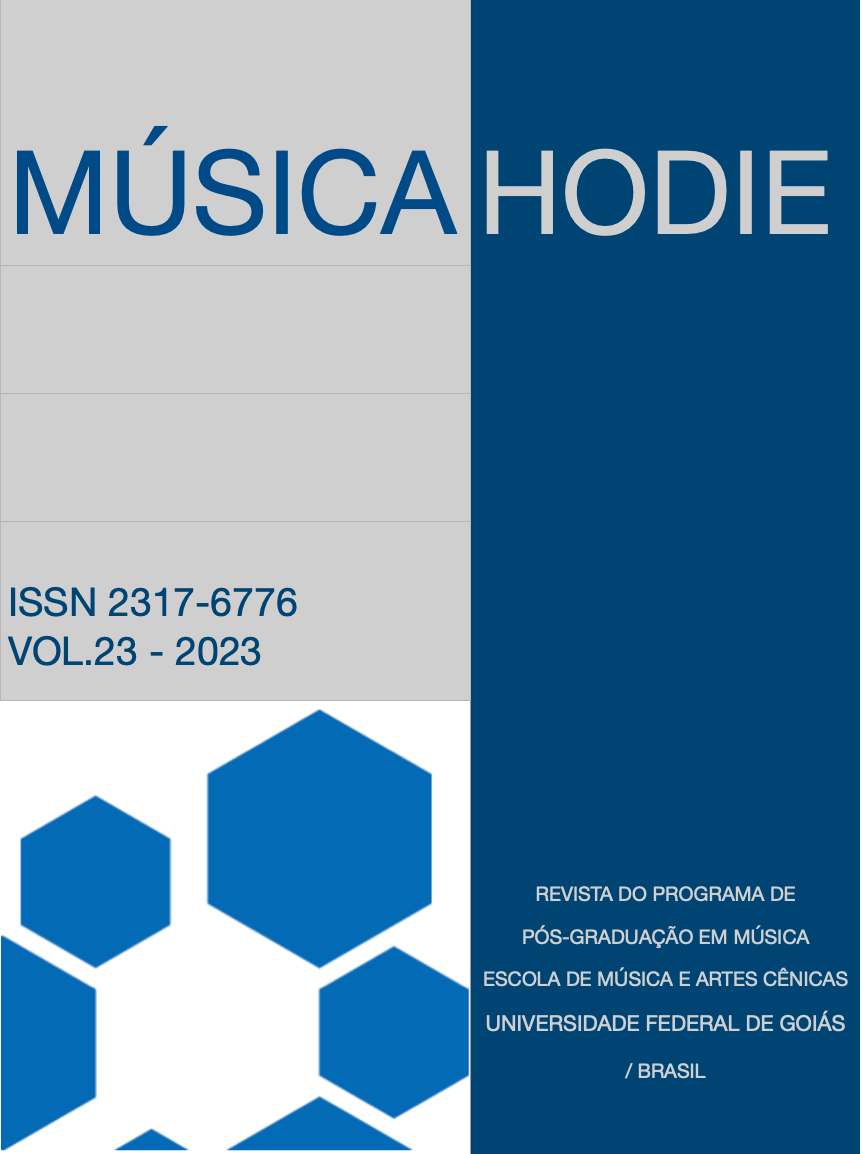Can blind people conduct musical ensembles? The deconstruction of visual dependency in conducting teaching through Maestro v0.1
DOI:
https://doi.org/10.5216/mh.v23.76883Palabras clave:
Conducting and visual impairment, Conducting teaching, Maestro v0.1, Musical performance studies and visual impairmentResumen
This article reflects the author's experience as a teacher, performer and researcher. It reveals a scientific path that displaces the dependency of visuality in the constitution and technical acquisition of conducting. Two central axes structure the discourse. A) A theoretical articulation that impoverishes the dependence on visuality in obtaining conducting skills and competences and; B) The use of Maestro v0.1 as a possible technological resource, to help the technical and individual studies of blind conducting students. The methodological procedure to achieve the research objective is based on User-Centered-Design. It focuses on technological development, considering the user as a central point, aiming to articulate their needs, limitations and desires for the creation of a prototype that meets these elements. 25 volunteer blind students participated in the usability tests that corroborate, through comparative data, the use of Maestro v0.1 as a support for teaching and technical learning of conducting for blind students.















